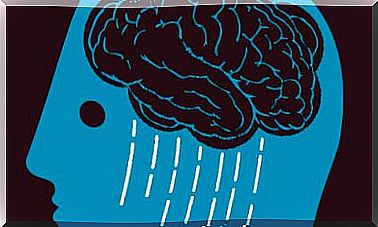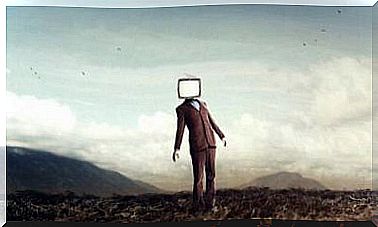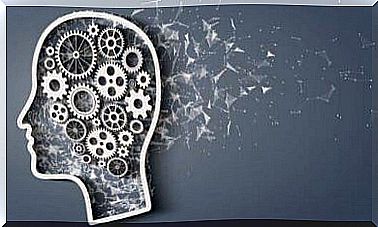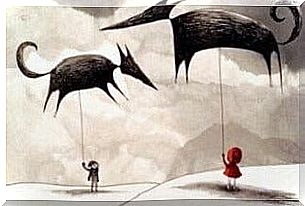Mental Inflexibility And Depression

Mental inflexibility makes it difficult to function and adapt normally. It also has to do with being one of the factors in people’s lives that creates or increases suffering. It is defined by six processes, running opposite to those seen in mental flexibility.
There is inflexible attention, breaking one’s own values, inactivity or impulsivity, identification with a conceptual self, cognitive fusion and experiential avoidance.
Albert Ellis’ rational-emotional behavior therapy (abbreviated REBT from the English term) claims that people become depressed because of their irrational interpretations of events that happen to them.
A person’s belief system is a very important factor in explaining emotional disturbances. Therefore, it is one of the primary points that this therapy focuses on.
Mental inflexibility creates disorders
An irrational interpretation of events, along with not wanting to change one’s belief system, perpetuates depression. Aaron Beck’s cognitive model of depression suggests that depressive thought patterns give rise to symptoms of depression.
It happens when the frequency of negative automatic thoughts increases in response to life events. Mental inflexibility, as well as negative automatic thoughts, are crucial elements in the relationship between depressive thinking and symptoms of depression.
Irrefutable, inflexible, overwhelming and self-defeating beliefs are therefore linked to patterns that create emotional disturbances.
These patterns can manifest themselves in actions, emotions, or exaggerated or dogmatic interpretations of life events. As a result, they can end up in mood swings.
Mental inflexibility and treatment of depression
Experts have linked mental flexibility with several positive indicators in individuals with mental health problems or chronic illnesses.
Some have also identified it as an important mechanism of psychotherapeutic change. Nevertheless, there are still not many therapists who pay much attention to mental flexibility.
When first meeting an inflexible person, they may seem to project a sense of self-confidence. However, if you dive deeper and look at things objectively, you will be able to see that they are actually trying to hide their own insecurities.
They feel comfortable doing, thinking and defending the same things over and over again in different situations. It is their comfort zone. Taking them out of that zone will make them feel defenseless, which, sooner or later, can lead to fear.
If you want this person to change, you need to get the person to see the benefits of mental flexibility. At the same time, you also need to make them see the disadvantages of mental inflexibility.
Man s k al change behavior
People sometimes have to be inflexible in certain situations. However, flexibility is the most appropriate way to handle a wide range of situations and thoughts.
The most disabling characteristic of mental inflexibility is the inability of inflexible people to modify their routines and mental habits. In many cases, this leads to depression.
The mental mechanisms associated with inflexibility are extremely counterproductive when it comes to trying to overcome a depression. They aggravate the condition, making it difficult to get over it. Moreover, people tend to always think negatively, which can also make them get worse.

Mental flexibility for a better life
How you see the world and your environment shapes your well-being. Your dedication and the attitude you have towards yourself and others do this too. This is why a person with a flexible mind has many benefits.
Flexible people never stop learning, growing and connecting with others. They are also better able to tolerate frustration, they are not afraid to change, they develop over time and they generally have a lower stress level.
Mental flexibility is also an overarching tool for a life, structured by appropriate behaviors, thoughts, and emotions. Adapting to different situations and behaving in line with your values makes you as flexible as water. That is, you become one who is able to overcome any obstacle because of your adaptability.









